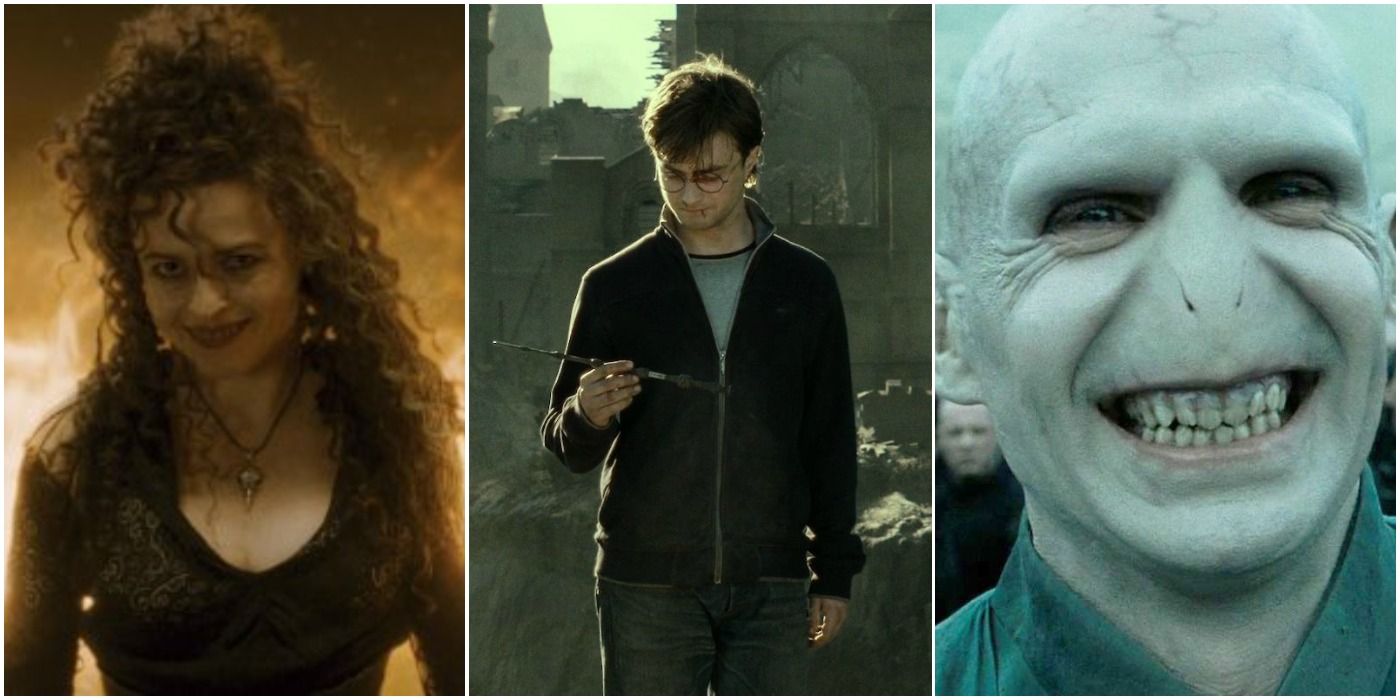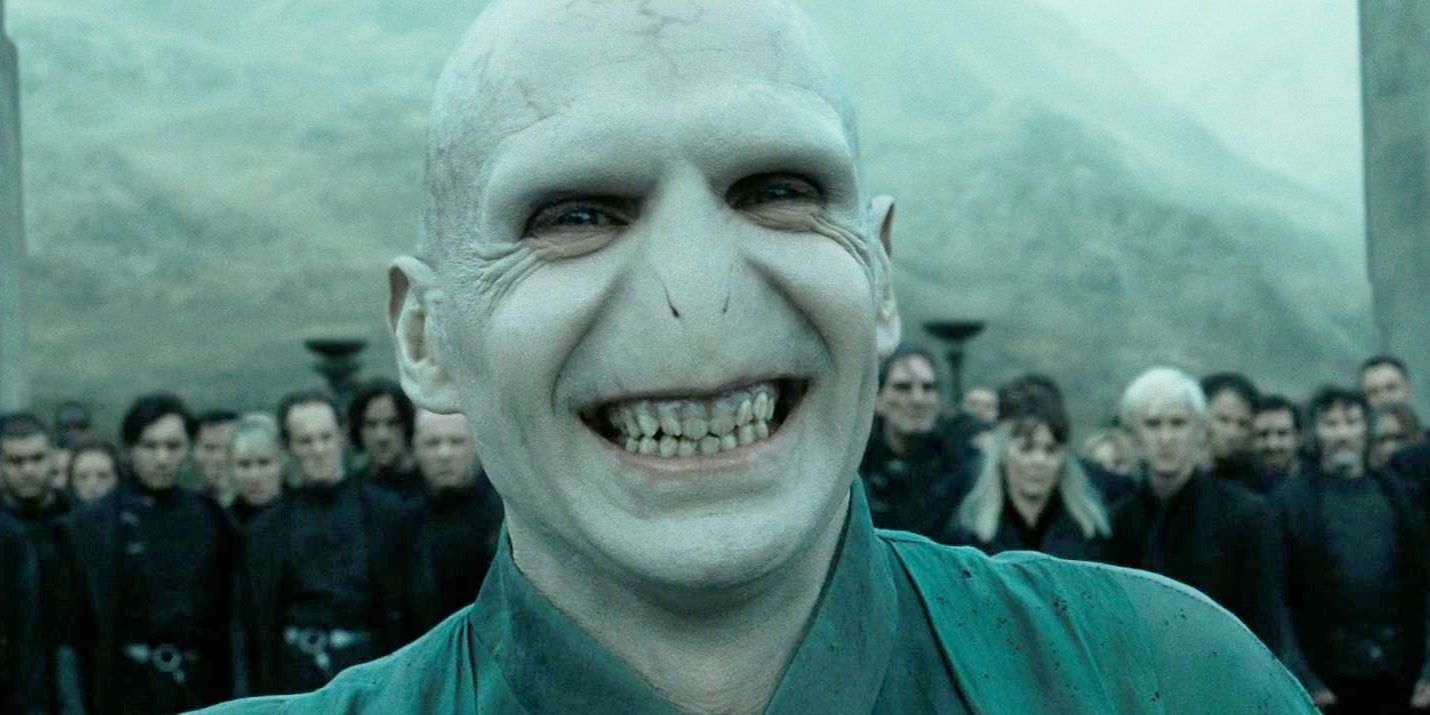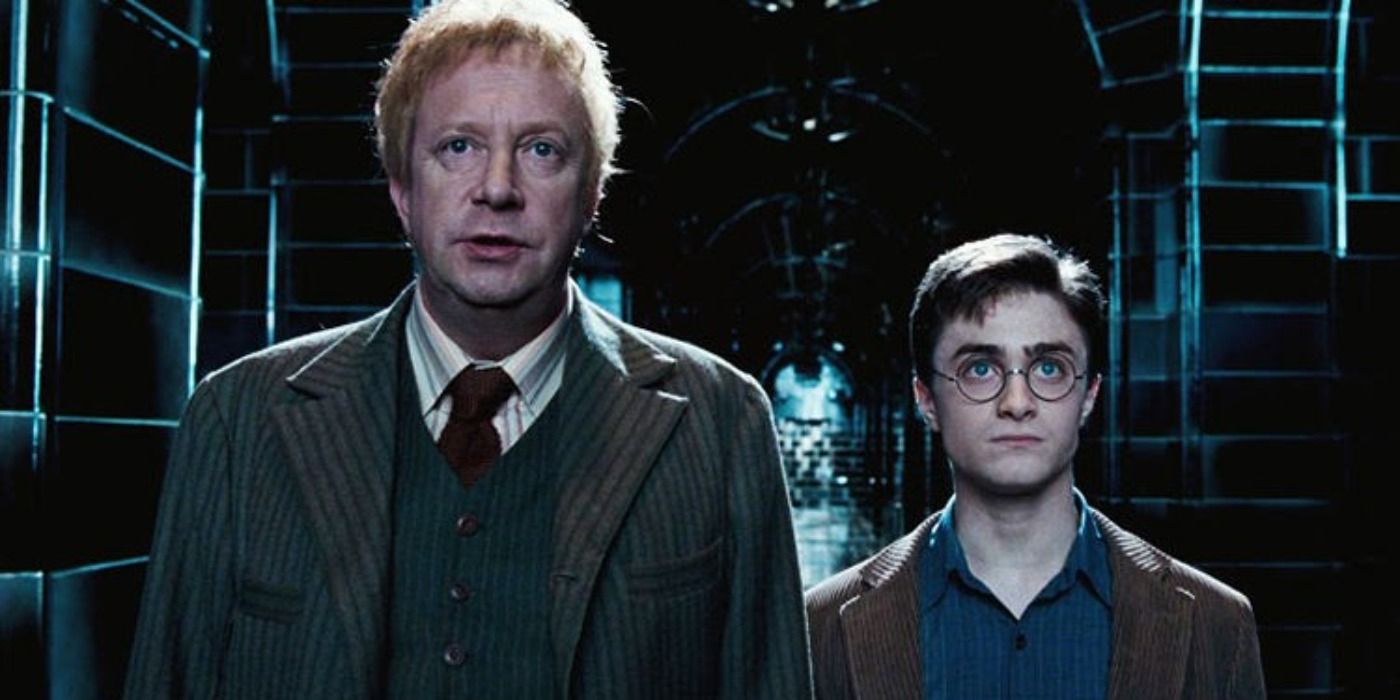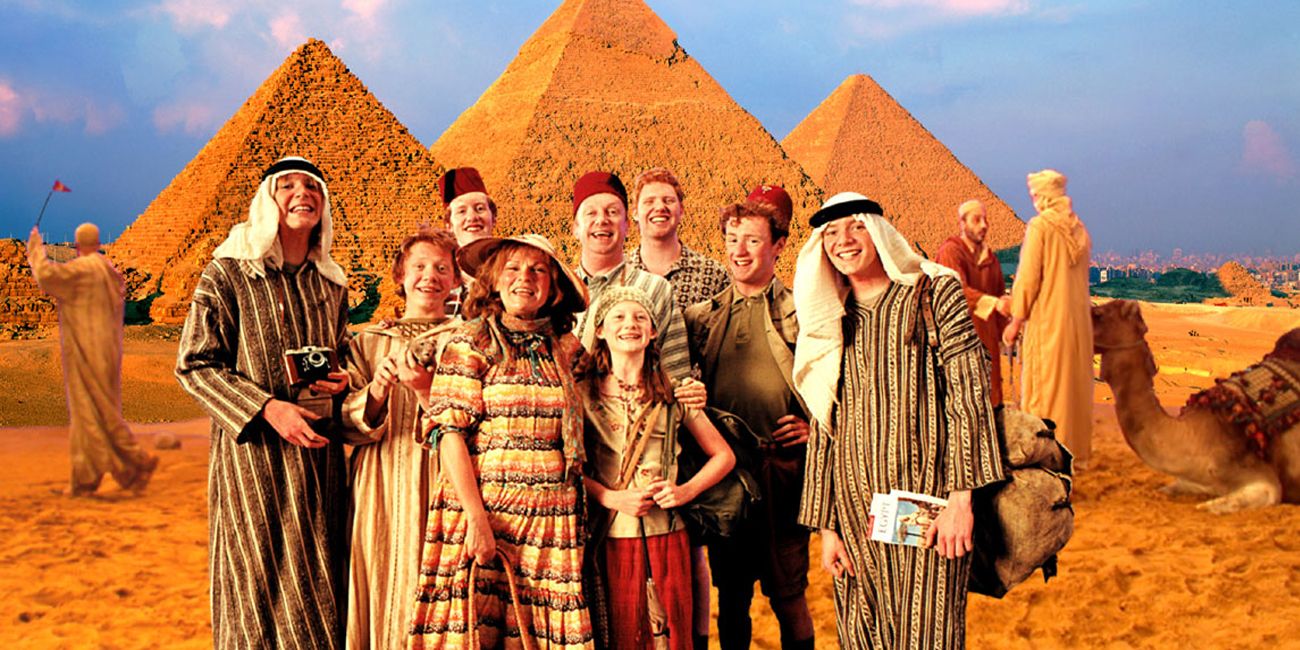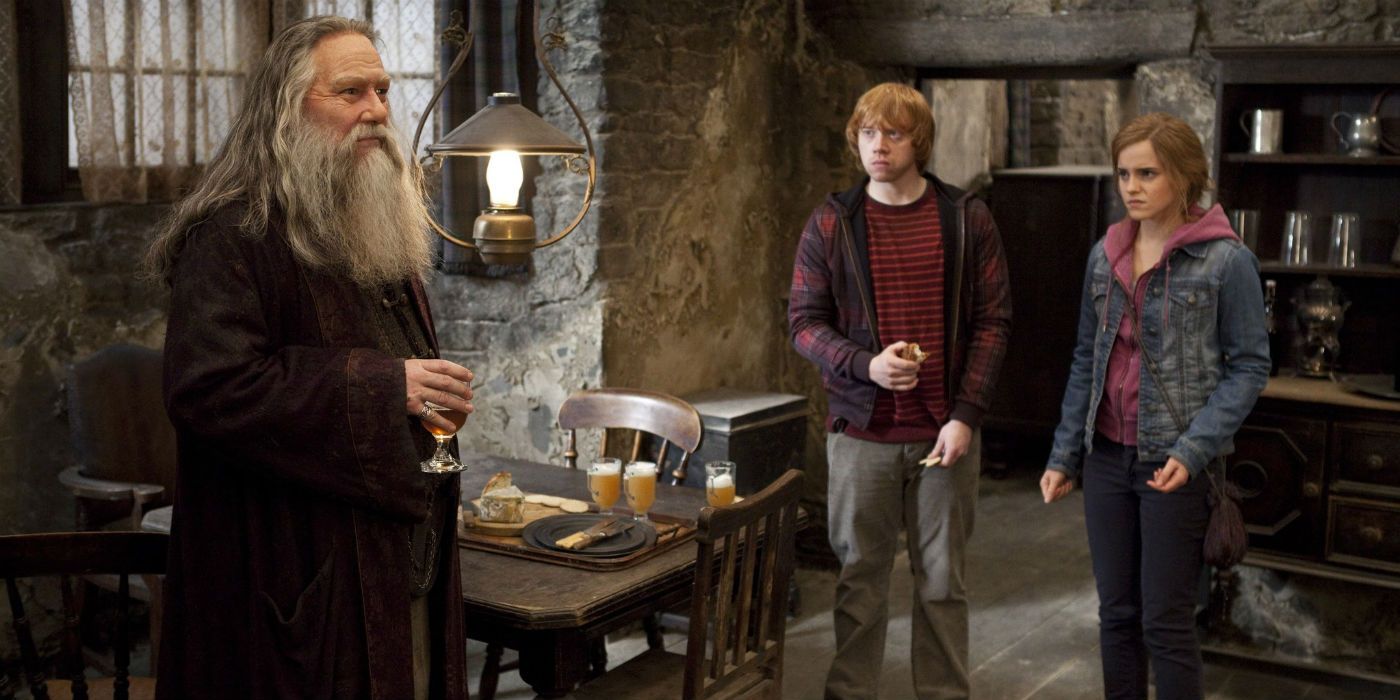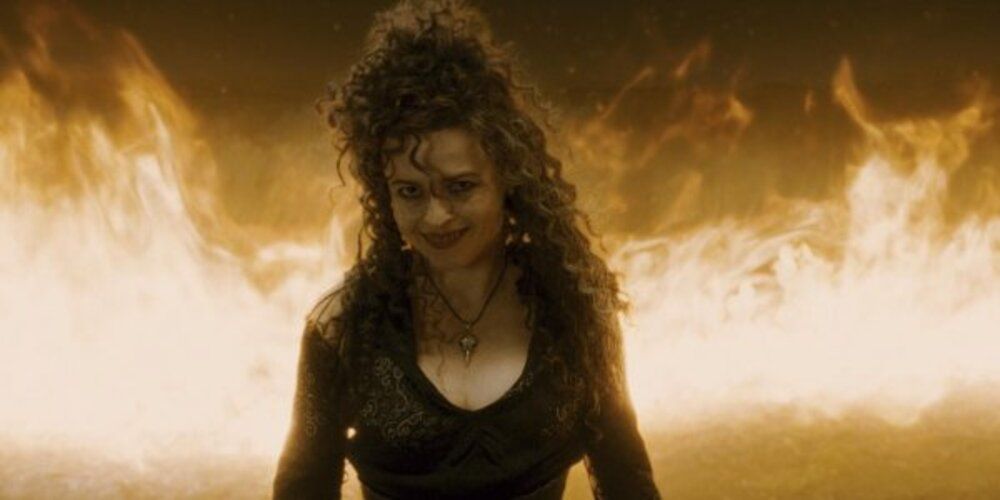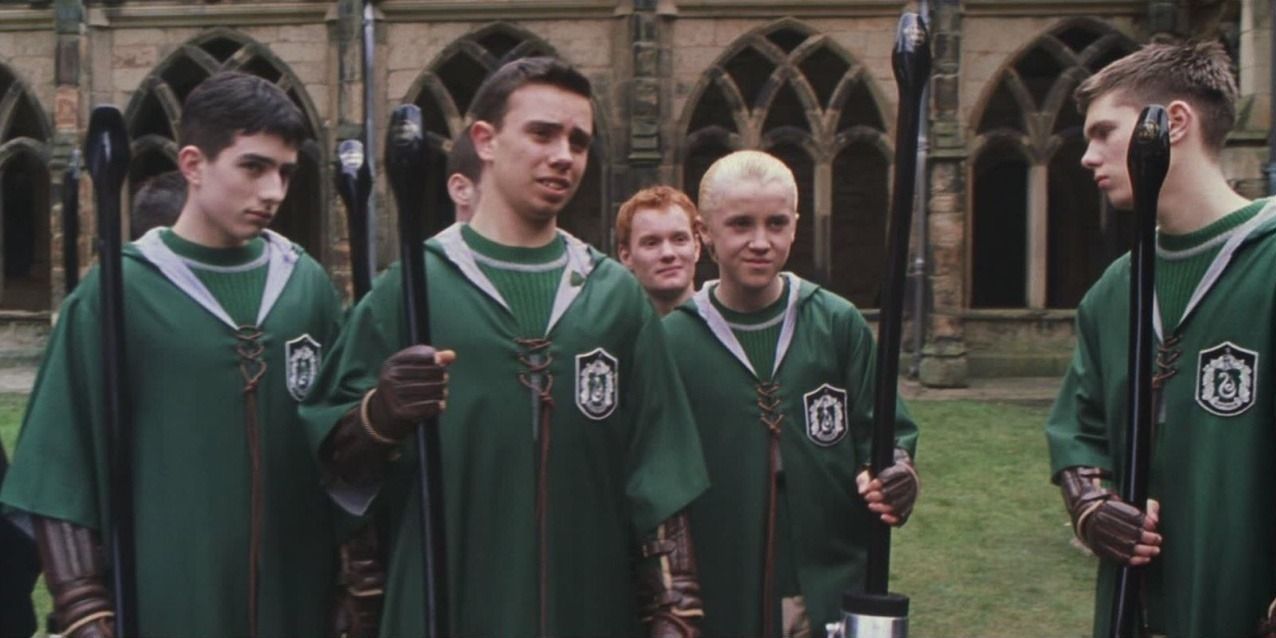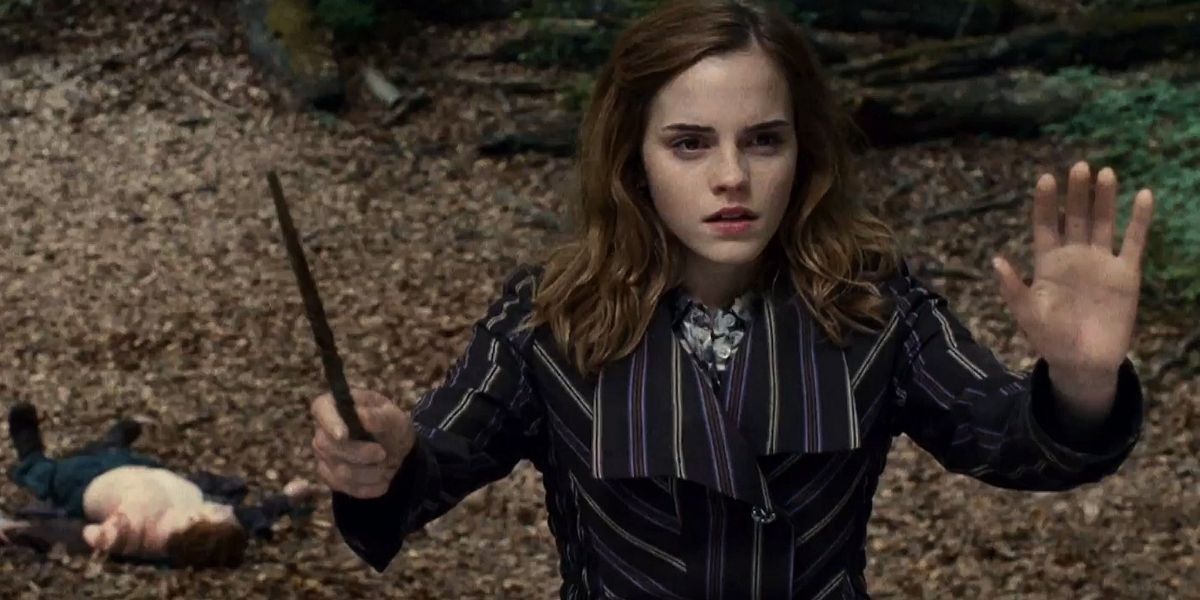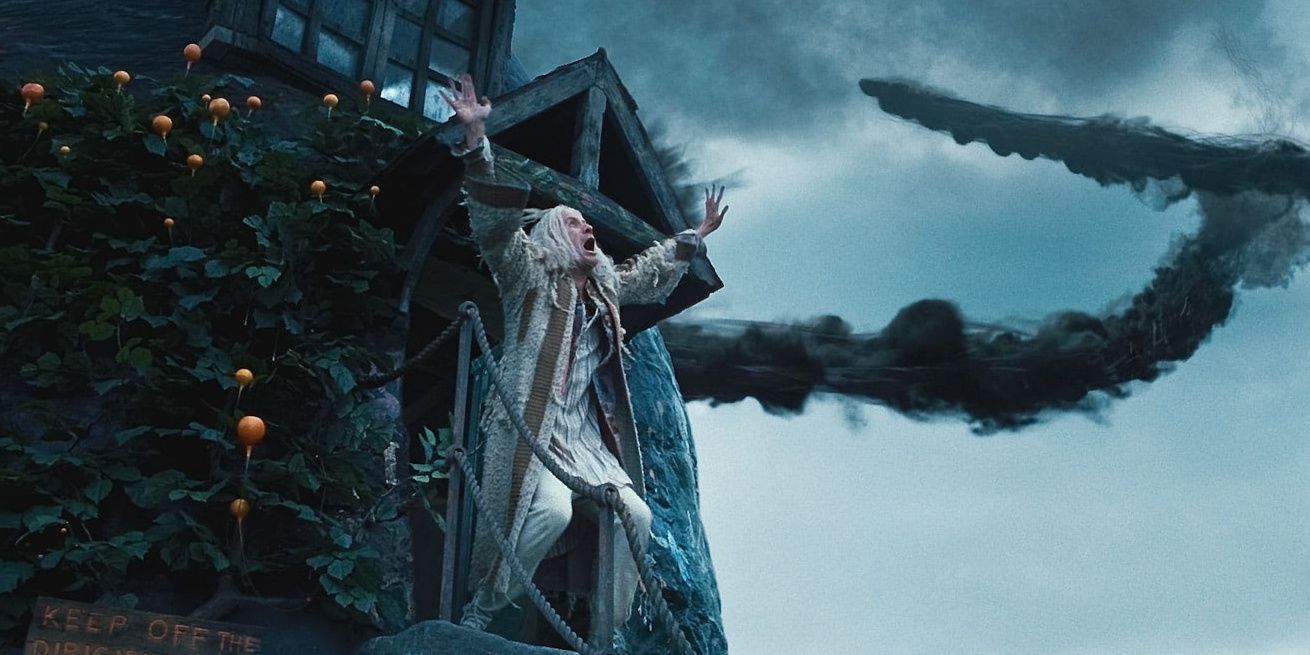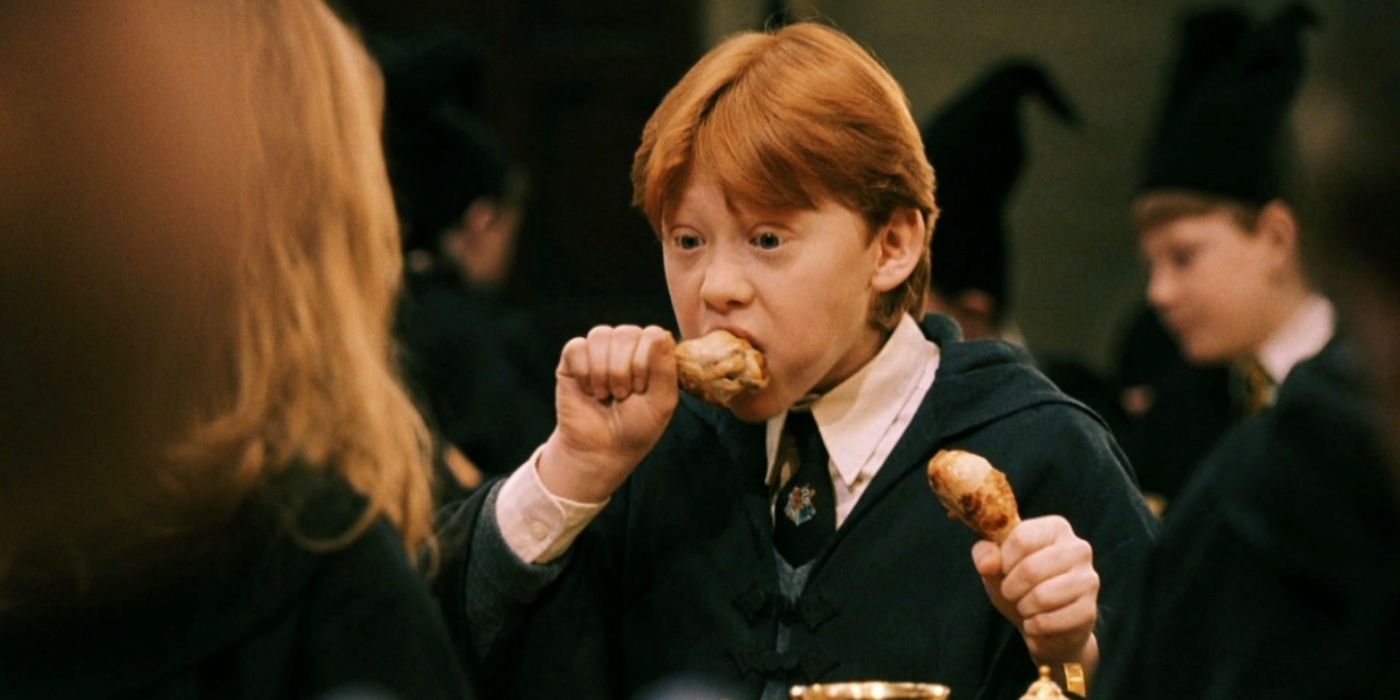The internet exploded when the possibility of a Harry Potter TV series circulated in the news. The film series has been over for a decade by this point, while the Fantastic Beasts series has been inconsistent in its expansion of the Wizarding World.
It’s expected that the show will portray the story of the novels rather than be a spin-off, meaning the events that were shown in the movies will be reimagined on the small screen. In order to avoid the negative reception to certain points in the films, the TV series has to avoid the few mistakes that held the franchise back.
Making Voldemort A Hammy Villain
Where the book Voldemort was an absolute nightmare who had snakelike mannerisms and a venomous personality, the movie version was sometimes something of a comedic character. In fact, even the climactic moments of Deathly Hallows - Part 2 featured a bit of Voldemort hamming it up.
The TV series needs to go straight to the novel’s roots and adapt Voldemort as the fiend he’s supposed to be. This means avoiding any scenes where he’s overwhelming the scenery or acting awkward. Instead, Voldemort should carry the fear factor the Wizarding World associates him with.
Harry Being Rigid With His Emotions
Though Harry remained an eminently likable character throughout the books, he was by no means as calm and stoic as the movie version. Many fans felt that the glaring mistake of The Order of the Phoenix was toning down Harry’s explosive emotions, with the most distinct attribute of his rage hardly ever showing up in the movie.
The TV series needs to adapt Harry’s exact character traits, including everything from his sassiness, his knack for sarcastic comments, and even the times where his anger might make him a dubious hero. Some fans felt that the movies made him too one-note at times, which is something the TV series shouldn’t emulate.
Sacrificing Plot Elements For Cinematic Value
Although the movie series remained loyal to the heroic deaths, for the most part, quite a lot was left out for cinematic effect. The worst instance of this was Harry breaking the Elder Wand and tossing it away, while the novels had him embrace his status as the Master of Death and return the wand to Dumbledore’s grave with the intention of letting the magic of the wand die out when he did.
The TV series has the benefit of time on its hands, meaning it won’t need to condense plot points or entirely eliminate them in order to land any kind of impact. To this end, it has to include the essential content from the novels as they were.
Leaving Out Characters That Boost The Main Characters' Backgrounds
While it might seem like some characters were unimportant, they actually contributed to carving out the backgrounds of the main characters. The film series sometimes decided to ignore this aspect, with the side effect making things that were supposed to be important into little concern to the viewer.
For instance, one wouldn’t care that Barty Crouch had been killed by his son, not when their history with Winkie and Mrs. Crouch never showed up. In the same vein, Greyback's scarring of Bill was immaterial since nobody saw him onscreen beforehand. This is why the TV series needs to include even seemingly minor characters, as they ultimately boost the value of the main ones.
Fast Forwarding Through Important Details
The reason why the Fantastic Beasts movies are inconsistent in regards to their acclaim is that they continue to make some of the mistakes made in the Harry Potter series. The Harry Potter movies developed the habit of revealing what was meant to be important in conversation.
Essential points, like Dumbledore’s youth and Regulus Black’s sacrifice, were side-stepped entirely after small mention, which fans weren’t too thrilled about. The TV show has to bring these moments to life instead, perhaps through flashbacks or scenes that portray the impact of these revelations on the characters.
Creating Entirely New Scenes That Diverge From Established Points
The latter half of the series had the issue of creating new scenes that weren’t even hinted at in the novels. The problem with these scenes was that they clashed with the plot, turning the eventual culmination of the story into a confusing mess of sorts and turning off some novel fans.
Scenes like Bellatrix’s attack on the Burrow -- and the zero impact it had since the house was built back without any problems -- weren’t for anyone’s benefit. The TV series could avoid this by going the opposite route, in that it can adapt exact scenes from the novel that the movies couldn’t accommodate.
Turning Houses Into Stereotypes
The predictable dynamic between Harry and Draco was meme-worthy for sure, but it was also a flaw in the movies. The books, while mostly showing Slytherins in a negative light, did display negative traits in the other Houses as well, rather than make Gryffindor completely good and pure.
The TV series needs to avoid turning the Houses into stereotypes. In the movies, the Ravenclaws were stuck with the smart tag, Slytherins as the evil ones, and Hufflepuffs were basically useless. In order to bring a well-rounded view of Hogwarts, the show should present their intrinsic qualities.
Leaving Out Hermione's Flaws
For all of Hermione’s strengths, she also devised plans that failed. This was actually to her benefit, as the books made her a human character who learned over time and become the piece that completed the trio. The movies tossed Hermione’s gaps in personality aside to essentially make her the trump card.
The mistake here was that it diminished everyone else’s role, as the other characters were often needless when Hermione could solve everything. The TV series should bring forward Hermione’s narrow-minded personality presented in the novels -- as pointed out by Luna -- along with instances where she needed Harry and Ron's help, so she can come across as a relatable character.
Giving Nonsensical Powers To Death Eaters
The fight scenes in the movies left more to be desired for some fans, as they seemed as if the characters were in the Hunger Games rather than dueling. Many fans of the novels felt that the Death Eaters were perceived wrongly by the filmmakers, as they were turned into Voldemort substitutes who could fly at will and use non-verbal magic as if it was a joke.
The TV series has to realize that the Death Eaters were supposed to be extremists who hid behind Voldemort’s power, with only a few of them being powerful themselves. To this end, the Death Eaters need to be presented as they were in the novels as Voldemort’s lackeys, rather than powerful wizards who can break the laws of magic on a whim.
Stripping Away Most Of Ron's Characterization
Those who have only watched the movies and haven’t read the books will wonder what Harry and Hermione ever saw in Ron. The movies’ biggest mistake was to turn Ron into a sometimes combination of uselessness and comic relief.
The way this mistake was carried out was due to Ron’s positive traits being distributed to Hermione instead, such as Ron being the one to suggest how to beat the Devil’s Snare, being compassionate over Muggle-Borns’ struggles, and defending Harry when he thought Sirius was going to kill him. The TV series is in a prime position to adapt the true Ron Weasley, which is essential since live-action fans can finally see what he’s capable of.

